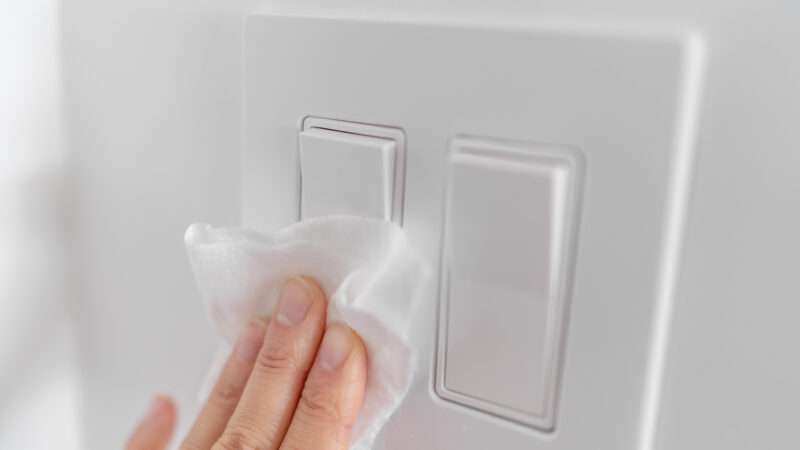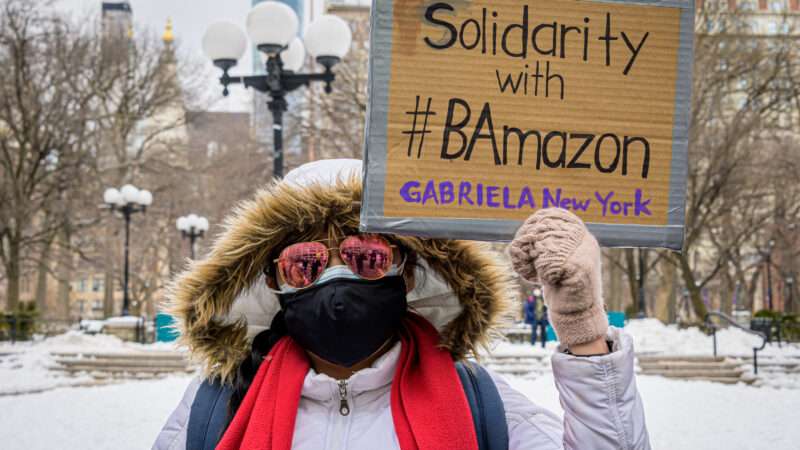The 9/11 attacks gave us the heightened security theater now on display in all U.S. airports. Day after day for the last two decades, Transportation Security Administration agents have patted down travelers from teens to the elderly, looking for weapons that nobody expects to find. While airplane cockpit doors are now locked to prevent hijackings, the pat-downs remain.
And now we have pandemic hygiene theater to give uninformed people a false sense of control and sustain their fear of the virus.
Think of the number of hours that schools, restaurants, and other businesses spend wiping down surfaces to prevent COVID-19 transmission even though we’ve known since last July that this wiping isn’t necessary. Yet Americans continue to spend untold hours and dollars wiping surfaces to provide the appearance of virus protection to their patrons.
In Arlington, Virginia, my kids’ schools have implemented overly stringent and frankly illogical measures that create barriers to accessing an effective education. For starters, the schools have only welcomed back a subset of their student population for two days a week for in-person education. They’ve also reduced the number of actual teaching days from five to four, during which the kids get only half of the education time they used to get. But they do spend time and energy wiping down surfaces and making students wipe their desks. They’re also instructed daily to “limit touching of surfaces to only when is necessary.”
That isn’t the only form of hygiene theater some schools perform.
Every morning I must fill out a form for each of my kids, assuring the school that they have no fever, yet the school still has temperature checks at every entry point of the building. The alleged need for temperature checks is one stated reason for why kids cannot be taught on site more than two days a week and why more kids can’t be brought back for in-person instruction.
These theatrics continue even though Anthony Fauci admitted last August that temperature checks “are notoriously inaccurate.” Nobody should be surprised. We’ve known for months that up to 40 percent of Americans with COVID-19 are asymptomatic.
Our schools also claimed that they couldn’t bring the kids back last fall because students must stay six to 10 feet apart. I’m reminded of this every morning when I electronically agree to my kids following the safety standards. That’s 4 feet more than even the Centers for Disease Control and Prevention (CDC) recommended for months. And even the origin of that 6-feet rule is mysterious. It’s twice the length recommended by most countries and the World Health Organization.
Adding insult to injury, the CDC finally changed its guidelines from 6 to 3 feet, yet Arlington schools still require distances of at least six to 10 feet and universal mask use. Never mind that teachers have been prioritized for vaccination, and research shows that schools don’t increase COVID-19 spread in the community.
And as the Manhattan Institute’s Connor Harris notes, the evidence behind some of these mask mandates “turns out to be quite weak.” The “widespread use of masks throughout the United States and Europe has failed to stop massive pandemic waves in the fall and winter,” he observes, adding that “preliminary signs also suggest that mask mandates may be causing considerable harm. Several state governments have recently rescinded their mask mandates, and a look at the science suggests that more should consider following.”
Likewise, for a number of valid social-development and health-related reasons, Harris’s colleague John Tierney concludes that “mask mandates are especially cruel to young children.” As Tierney’s research explains, “The CDC’s policy placates the leaders of teachers’ unions but flouts the guidance issued jointly by UNICEF and the World Health Organization.”
These theatrics play out in a world where many of us reuse our face masks such as the one we keep in our car, reuse surgical masks many times, or wear masks below our noses. There are many actors starring in this daily health drama. The same applies to the number of Americans who continue to wear masks outdoors despite evidence that transmission rarely takes place outside. And the same will be said of those who, although vaccinated, will continue to wear masks long after we reach herd immunity.
While some of these examples may seem silly, hygiene theater has huge costs and wastes precious resources. It also keeps Americans unjustifiably scared of the virus while promoting the delusion that with enough such measures, we can finally live in a world free of risks.
COPYRIGHT 2021 CREATORS.COM

from Latest – Reason.com https://ift.tt/3xfIJI0
via IFTTT



